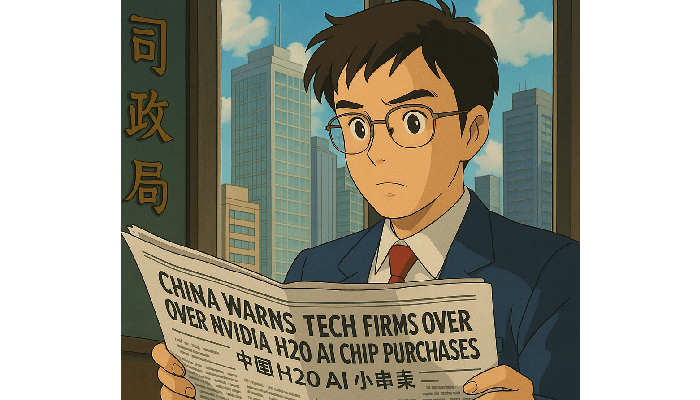The Chinese government has reportedly cautioned major domestic technology companies, including Tencent, ByteDance, and Baidu, over their purchases of Nvidia’s H20 AI chips, raising data security concerns and encouraging a shift toward China-made semiconductors.
According to sources familiar with the matter, the Cyberspace Administration of China (CAC) and other regulatory bodies have summoned several internet and AI companies for closed-door meetings in recent weeks. Officials questioned why these firms were sourcing AI chips from U.S.-based Nvidia when domestic chipmakers could meet their needs.
Authorities expressed particular concern that technical materials Nvidia requires for U.S. government compliance reviews might contain sensitive information, including client and operational data. While companies have not been explicitly ordered to halt H20 chip purchases, several were issued official notices advising against using the chips for government projects or national security-related work.
Media reports suggest that in some cases, including with ByteDance, Alibaba, and Tencent, the CAC has gone further—temporarily suspending their H20 chip acquisitions altogether. The move comes shortly after the U.S. eased export restrictions on the H20, a less advanced chip variant designed to meet previous trade compliance rules.
Nvidia has clarified that the H20 chip is “not a military product or intended for government infrastructure” and stressed that China has the capacity to rely on locally produced AI chips. However, Beijing’s renewed push for chip sovereignty is already affecting the market—shares of SMIC, China’s top contract chipmaker, surged 5% on expectations of increased domestic demand.
This latest development underscores China’s broader strategy to reduce dependence on U.S. semiconductor technology, safeguard sensitive data, and strengthen its domestic AI hardware ecosystem—a crucial move as global AI competition intensifies.


